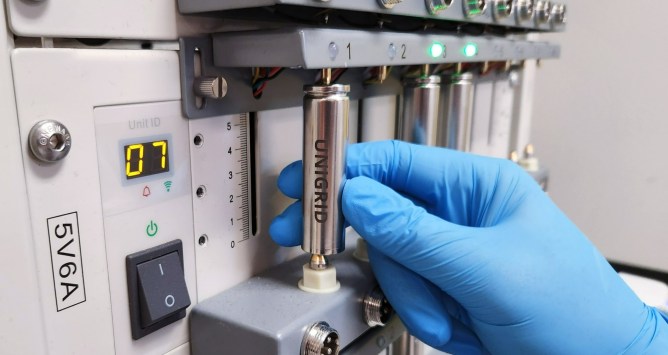Batteries have come a long way since their invention, but they still face significant challenges. One major obstacle is cost. Lithium-ion batteries, the most widely used type, are still too expensive to power every home with energy storage systems. This has led manufacturers to explore alternative battery technologies, such as sodium-ion batteries.
Sodium-Ion Batteries: A Promising Alternative
Sodium-ion batteries have been gaining attention in recent years due to their potential cost savings compared to lithium-ion batteries. Darren Tan, co-founder and CEO of Unigrid, told TechCrunch that when produced at the same scale, sodium-ion batteries should be about half as expensive as lithium-ion batteries. This is because the raw materials used in sodium-ion batteries are significantly cheaper.
Tan’s startup, Unigrid, has developed a new chemistry based on sodium-chromium-oxide and tin, which addresses some of the challenges associated with sodium-ion batteries. Their batteries don’t take up any more space than traditional lithium-ion cells, have the same power output, and can use existing electronics to manage them.
A Safer Alternative
While sodium-ion batteries show promise, they are not without their challenges. One major issue is their density, which makes them too large and heavy for electric vehicles (EVs). Additionally, many variants of sodium-ion batteries behave differently when charging and discharging compared to lithium-ion batteries, requiring new electronics to manage them.
Unigrid’s solution addresses these issues by using a new chemistry that combines the benefits of sodium-ion with the reliability of lithium-ion. Their batteries are designed to be safer than traditional lithium-ion cells, with a thermal runaway temperature several hundred degrees Celsius higher. This makes them ideal for widespread distributed energy storage in buildings, hospitals, and data centers.
A New Business Model
Unigrid is taking a unique approach to manufacturing its sodium-ion batteries. Instead of building its own factories, the company will work with smaller battery manufacturers that exist solely to produce other companies’ designs. This model is similar to Taiwan Semiconductor Manufacturing Company (TSMC), which produces computer chips for companies like Apple and Nvidia.
By leveraging existing capacity at these facilities, Unigrid aims to produce batteries on a megawatt-hour scale. This approach will enable the company to deliver its sodium-ion batteries quickly and efficiently, making them available to customers within the next five years.
Market Opportunities
Unigrid’s first market will be energy storage for buildings and small campuses. The company is also exploring opportunities in the light EV market, particularly in India and Southeast Asia where lithium-ion batteries are prone to overheating due to high temperatures.
Tan sees a huge opportunity in these regions, where sodium-ion batteries can provide a safer and more reliable alternative to traditional lithium-ion cells. "There’s a huge opportunity there where the climate is very warm and lots of battery fires occur," he said.
Conclusion
Sodium-ion batteries offer a promising solution to the challenges facing traditional lithium-ion batteries. With its new chemistry, Unigrid has addressed some of the key issues associated with sodium-ion batteries, making them safer and more reliable. The company’s unique business model will enable it to deliver its batteries quickly and efficiently, providing a much-needed alternative in the energy storage market.
As the world continues to transition towards renewable energy sources, the demand for efficient and cost-effective battery technologies will only continue to grow. With sodium-ion batteries leading the way, we can expect to see significant advancements in the coming years.
Related Articles











